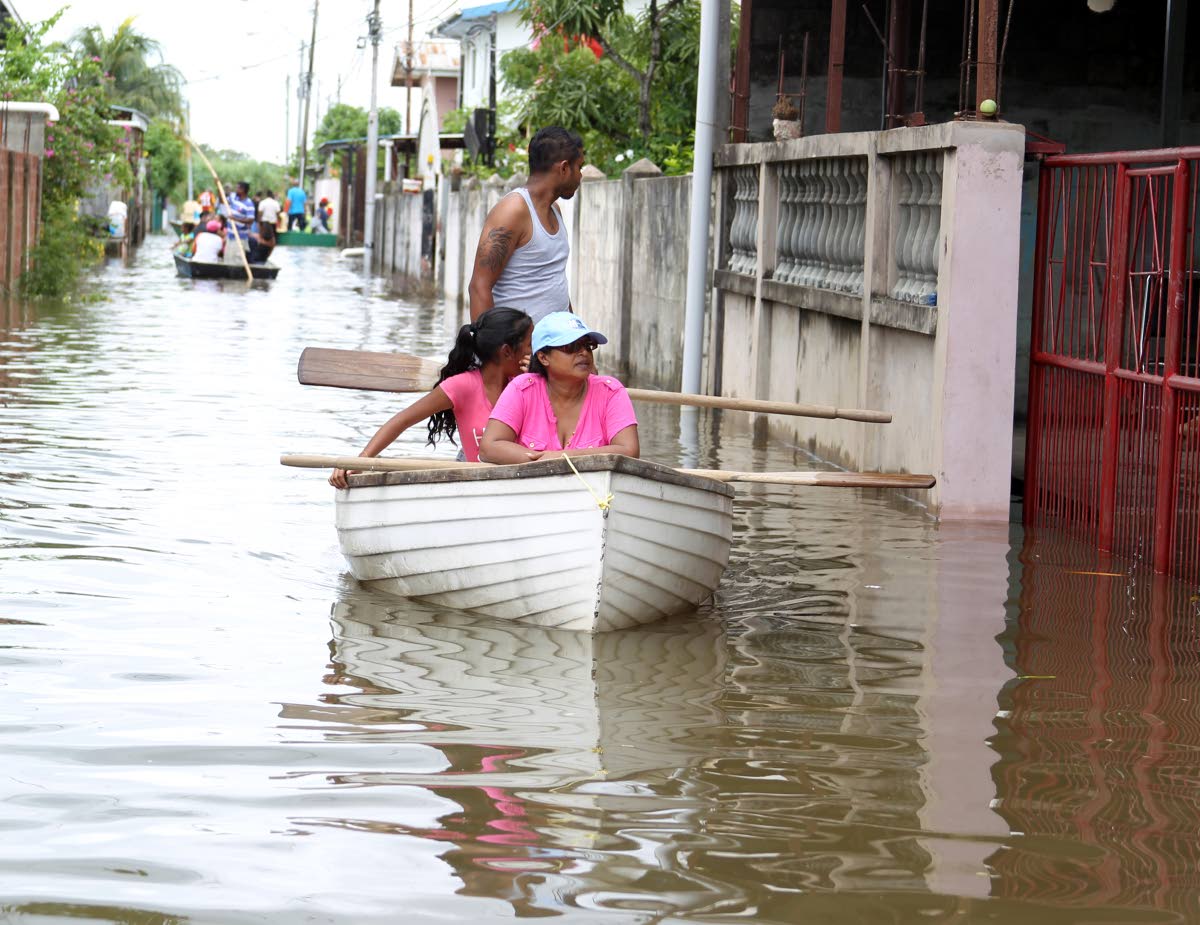We can build the ark

KIRAN MATHUR MOHAMMED
kmmpub@gmail.com
Most flood metaphors are inadequate. Talk of a deluge or a torrent may recall cleansing associations, or universal myths. But this flood has hit more than 120,000 people. The steaming, turgid waters do not seem cleansing – but opaque and ominous.
The economic cost has yet to be calculated and could escalate into the hundreds of millions. The human cost is all too clear. Many people I know have lost everything.
Yet as the waters have risen, other things have emerged. Kindness. Generosity of spirit. Empathy. Duty. Values buried under the seemingly intractable problems of our daily lives. We have not waited for rescue, but leaped up to help, by boat or bucket.
This disaster has redeemed our national spirit. And people still need help. But this is also an opportunity to plan for the future. According to Zurich Insurance, approximately 87 per cent of disaster-related funds are spent on relief instead of prevention and preparedness. How can we shift this balance, and harness the spirit of self-reliance and generosity that people have shown?
The problems are not intractable if broken down and addressed one by one. The first thing we can do is collectively manage our risk using insurance. Then we can come together to solve specific issues. Illegal littering, squatting, deforestation and quarrying reflect deeper social problems; but community action, private sector involvement, and behavioural economics can offer solutions. In the meantime, the State can work to review and invest in infrastructure and strengthen our disaster response. Finally, individuals and businesses can take simple concrete actions that make economic sense.
We need to insure ourselves more comprehensively against risks. We also need to get more reliable estimates of the costs and probabilities of catastrophic events. Insurance premiums will be very expensive if we cannot demonstrate to insurers that we have invested in preventative measures and exhibit cautious behaviours.
If better information reduces the quantifiable risk in insurers’ and reinsurers’ actuarial models, they can then hold less reserves and have more "float" available to productively invest. So better information provides insurers with a real monetary benefit, some of which can be passed on to consumers.
However, these incentives only work if both insurers and individuals have access to the same reliable and concrete information. This information will be the basis upon which probabilities of disaster can be calculated. Big data is transforming the insurance industry.
The State has wide reach, so it is much cheaper for it to collect information. A public/private programme could verify preventative measures and provide the information to insurers and recommendations to the insured at a low cost.
How can the State make their response more robust? I spoke with my grandfather Mahendra Mathur, former director of the National Emergency Management Agency, the precursor to the Office of Disaster Preparedness and Management (ODPM). Back then, the director reported directly to the prime minister; and had sweeping emergency powers. This made disaster responses quick and easier to coordinate. An updated early warning system would also help, as would further investments in traffic control plans and scenario planning.
Then there is infrastructure. Culverts are structures that allow water to flow around or under obstructions like roads or houses. We should review whether we have enough, and build more, if it makes economic sense to do so.
Reforestation and mangrove revitalisation are also cheap solutions that can have major impacts on the reduction of landslides and flooding respectively.
Fallen trees, particularly bamboo, are another culprit. It is impractical to continually hire crews to clear this away – but planting sturdier trees near riverbanks could help to prevent the problem.
Then there are social problems. Social media has also been filled with images of rivers clogged with tonnes of rubbish. But most people don’t want to litter, and part of the reason they do is that rubbish collection does not reach many areas. Better collection would help.
The Government has rightly imposed harsh littering penalties. By coming together as a community – as we have shown we can do – we can enforce social norms to discourage littering. There have been successful campaigns like Love Essex in the UK that have reduced littering by up to 41 per cent. This used an aggressive advertising campaign and partnered with hundreds of businesses, particularly fast food companies like KFC and McDonald’s. Businesses and the community were brought together to tackle the problem.
A programme like this could be combined with the use of ‘nudges’ like painting steps near litter bins, making them highly visible (as was done in a recent Swedish study); or getting fast food companies to write customers' names on packaging, as Daniel Read from Warwick Business School has proposed.
Illegal quarrying and land clearing contributes to erosion and removal of percolating soil. It contributes to flooding and should be cracked down on. State agencies are underfunded and lack the capacity to shut down illegal quarries. Why not privatise enforcement in a similar way to parking offences? Allow private companies that can record and check quarries and illegal deforestation to collect a percentage of fines.
Then there are the thousands of squatters who have illegally settled in flood plains. Many are among the poorest and most vulnerable to disasters. The private sector can be incentivised to build low income housing in safe areas.
Businesses can focus on planning for how they can keep up and running during the national disasters. The energy sector can again be an example, having long empowered their health and safety managers to integrate crisis planning into their businesses. This could save significant sums during and after a crisis. The American Chamber of Commerce has long championed this, and businesses associations can continue to build capacity for their members.
Finally, what about families and individuals? People can take simple flood-proofing actions, like building low flood walls near drains, or reviewing ground height before building. The ODPM has reported that having a family emergency plan or supply kit can be crucial supports during a natural disaster. Young people can take the lead.
This crisis is a major moment for the national psyche. As a country, we can harness the strength that this has demonstrated, and channel it to rebuild our nation.
Kiran Mathur Mohammed is a social entrepreneur, economist and businessman. He is a former banker, and a graduate of the University of Edinburgh.


Comments
"We can build the ark"